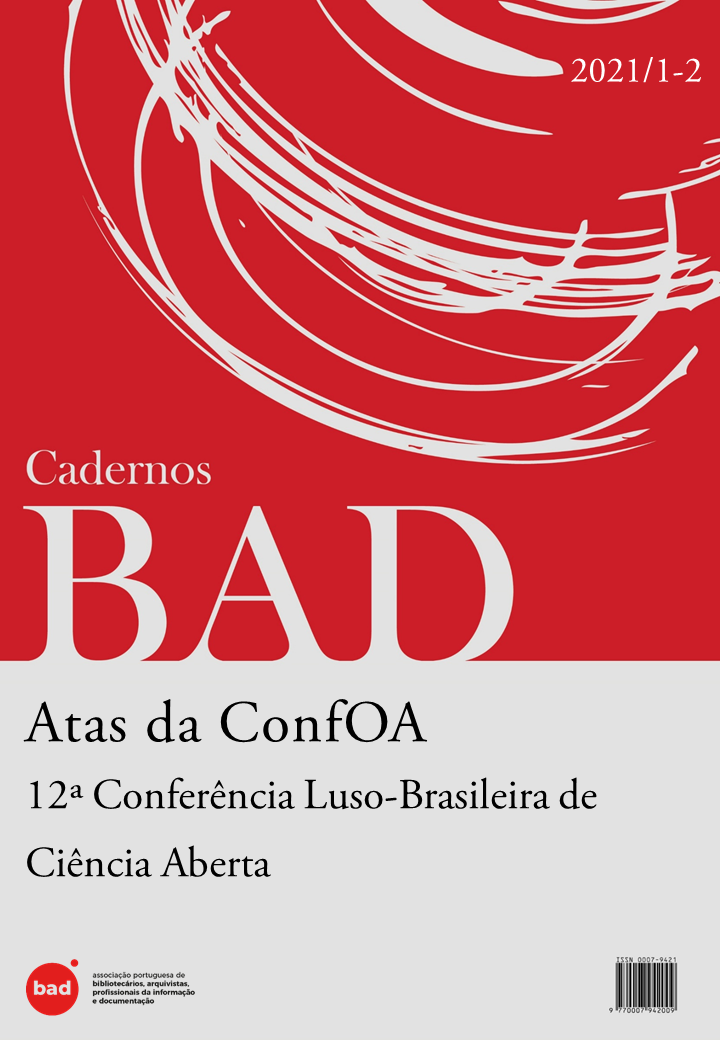Identifying data repositories in Brazil
DOI:
https://doi.org/10.48798/cadernosbad.2791Keywords:
Repositório de Dados, Dados científicos, Plano de Gestão de Dados, Ciência AbertaAbstract
The e-Science practices aim at reusing resources, sharing, collaborating and speeding up scientific development. The sharing of research data is fundamental to the realization of these practices. Research data repositories are based on technological infrastructures that store data in different formats, collected in research, in significant quantities and with computational processing. This research report is part of the study “Data Repositories: Project for the Implementation and Management of Scientific Data” known under the Graduate Program in Information Management at UDESC. One of the steps of this study is to identify data repositories in Brazil and their characteristics, platforms and management processes. The methodological procedure consisted of surveying sources in the Registry of Research Data Repositories Intiative - re3data.org, in the portal www.dataverse.org and in the research data metabuscador.uspdigital.usp.br. 15 research data repositories in operation were identified, 93% in public agencies and 7% in private institutions. Regarding software, 46% use DSPACE, 46% DATAVERSE and 8% software developed locally. There are few repositories installed and due to their short existence, it is understood that there is ample space for technical studies and research at the postgraduate level.
Downloads
Downloads
Published
How to Cite
Issue
Section
License
Copyright (c) 2022 Cadernos BAD

This work is licensed under a Creative Commons Attribution 4.0 International License.
Os autores que publicam nos Cadernos BAD:
- Concedem à revista o direito de primeira publicação, mantendo os direitos de autor, de acordo com os termos da Creative Commons Attribution, que permite a partilha do texto com menção obrigatória da publicação inicial nos Cadernos BAD;
- Mantêm o direito de publicar o texto noutros locais (ex.: repositório institucional, capítulo de livro, outra publicação periódica), com menção da publicação inicial nos Cadernos BAD e uma ligação para o sítio na Internet da revista;
- Mantêm a possibilidade e são mesmo incentivados a publicar e distribuir o seu trabalho online (ex.: em repositórios institucionais ou na sua página pessoal) antes ou durante o processo editorial, já que isso pode potenciar interações geradoras de melhoria, bem como aumentar o impacto e a citação do texto publicado (Veja Efeitos do Acesso Livre).


